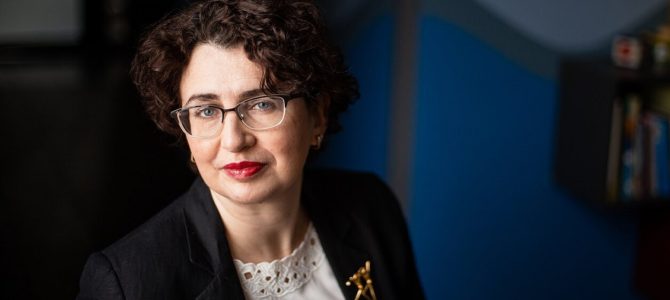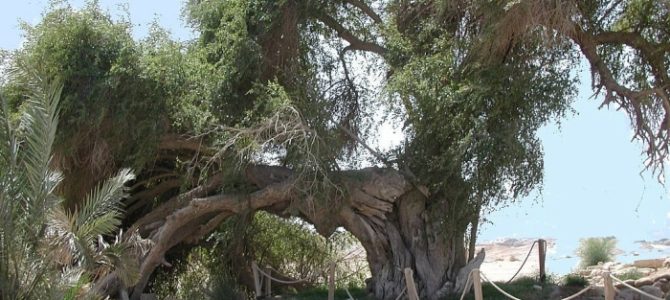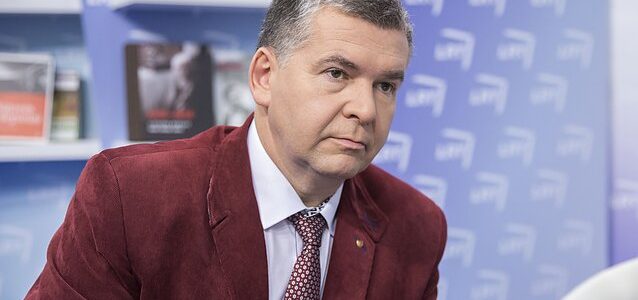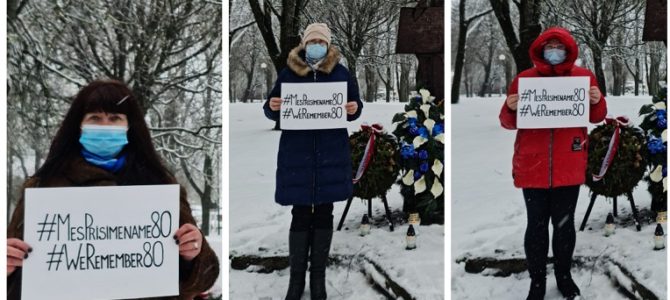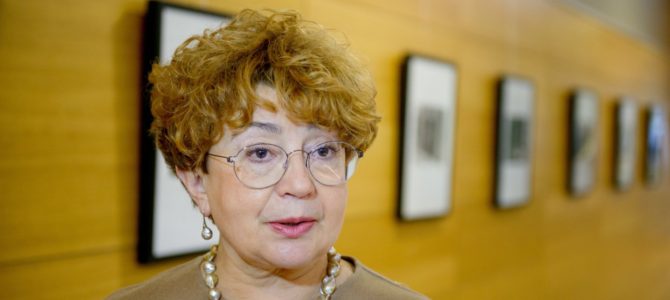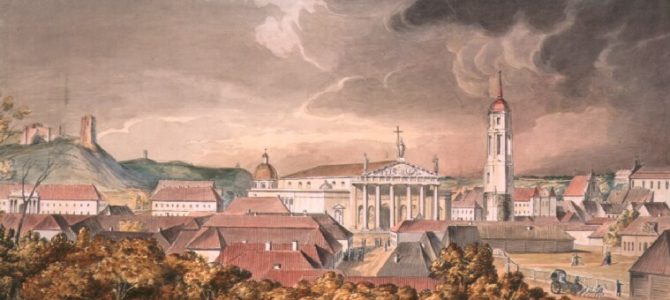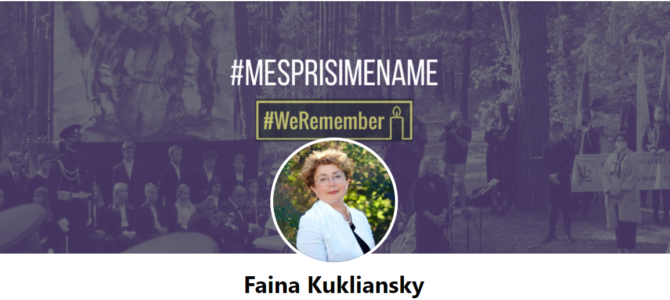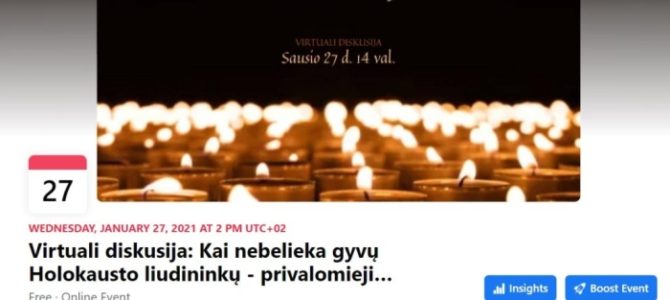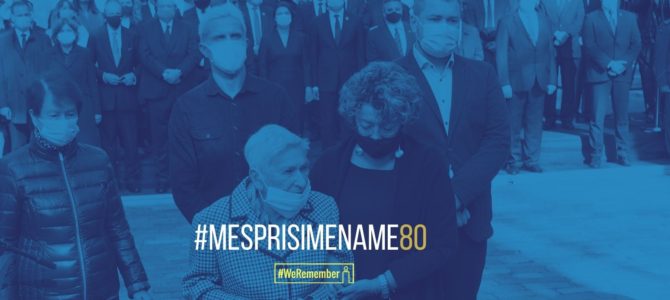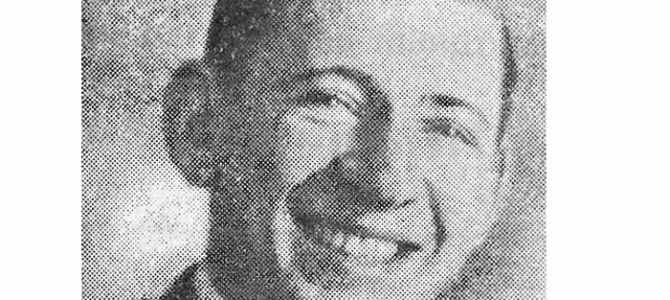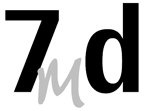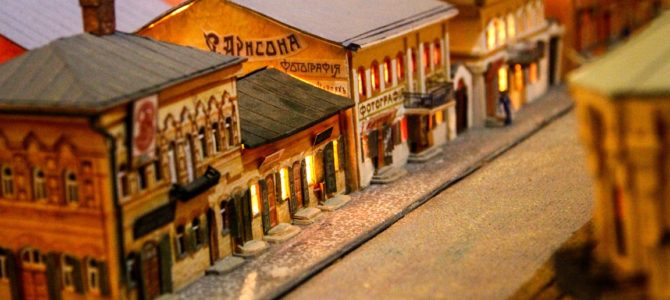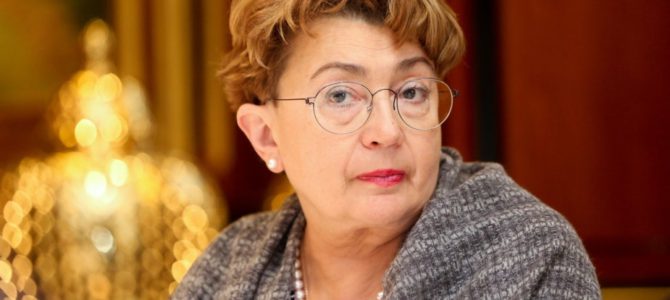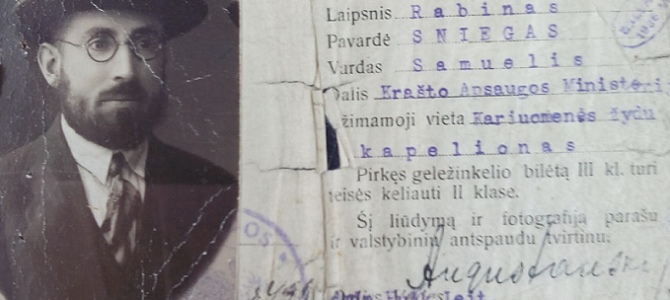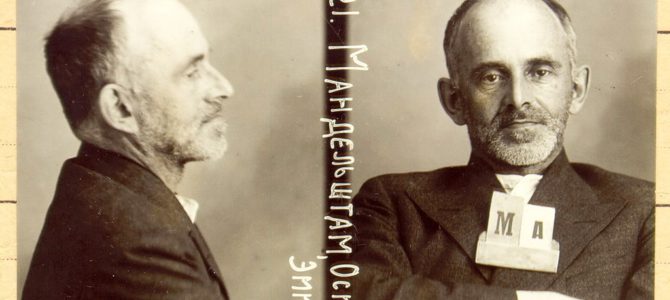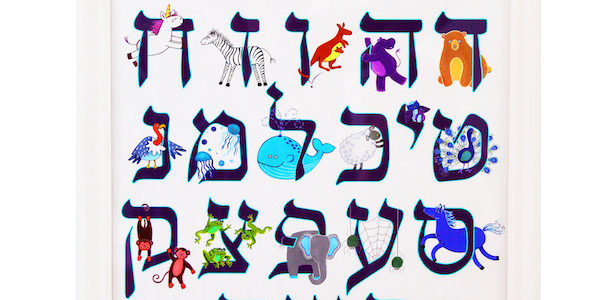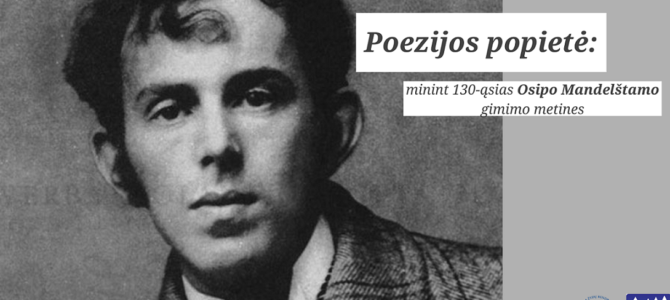Photo: Ruth Reches, by J. Stacevičius, courtesy LRT.lt
by Domantė Platūkytė
Life in the lion’s den, classmates as part of execution squads and concentration camps. These are aspects of Ruth Reches’s family life she shared with the LRT.lt website. Her grandmother after coming back from a concentration camp found the family home occupied. The new owners brought out a tub of water and let them spend the night on the ground in an adjacent shack. “What happened in Lithuania can’t be understood and explained rationally,” Reches said.
Reches, the principal of the Sholem Aleichem ORT Gymnasium and a doctor of psychology, gave an interview to LRT.lt and spoke about her grandparents surviving the Holocaust, the brutality of people and the impulse to aggression disinhibited by the war.
“When neighbors and classmates murder people… My grandfather’s mother was murdered by my grandfather’s brother’s classmates in Alytus. There are so many stories where teachers shot their students, and the town priest rang the bells so the shots wouldn’t be heard,” Reches, who has a published a book about the Holocaust and self-identity, said.
She said the experiences of the Holocaust haunted her grandparents their entire lives.
“The Holocaust left trauma in my grandparents’ lives because the environment to which they returned after the war was hostile and traumatizing. They returned to their hometowns and my grandparents saw their homes had been taken, and society wasn’t ready to accept them back. They felt no support from society, only anger that they had survivied,” Reches told LRT.


